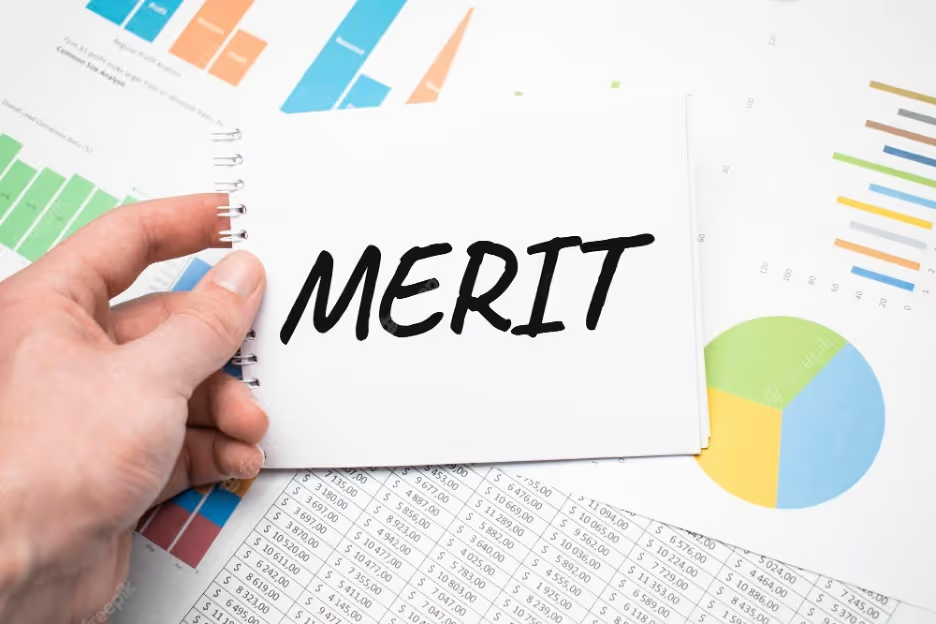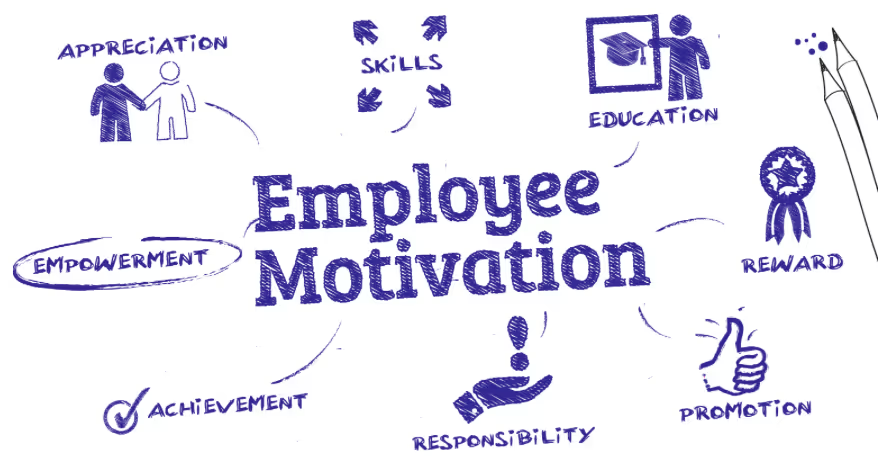The digital age has changed the way organizations manage their workforce and the way employees interact with their employers. The concept of merit planning is becoming increasingly popular as organizations strive to create a performance-based culture that rewards employees for their hard work and results. In this blog article, we will explore the impact of merit planning on employee motivation, performance, and retention in the digital age.
What It Is and How Does It Impact | Motivation, Performance, and Retention
Merit planning is a systematic approach to employee performance management designed to create a culture of recognition and rewards. The goal of merit planning is to reward employees based on their performance, rather than on seniority or other factors. This approach is designed to motivate employees to perform at their best and to cultivate an environment of continuous improvement.

In the digital age, merit planning is becoming increasingly important for organizations to create a performance-based culture and to promote employee engagement. By recognizing and rewarding employees based on their achievements, organizations can create an environment that encourages employees to achieve their goals and to stay motivated and productive.
Read Also: Maximizing Employee Motivation: The Benefits of a Total Rewards Software
Benefits of Merit Planning
Merit planning has several benefits for organizations in the digital age. The most obvious benefit is that it provides a clear incentive for employees to work hard and achieve their goals. When employees are rewarded for their performance, they are more likely to stay motivated and engaged. This leads to better performance and higher employee retention rates.
Merit planning also allows organizations to provide more equitable rewards to employees based on their performance. This helps to eliminate favoritism and bias in the workplace and ensures that employees are rewarded fairly.
Finally, merit planning helps organizations to create a culture of continuous improvement. By providing rewards for performance, organizations can encourage employees to strive for excellence and to continually improve their skills and knowledge. This leads to higher productivity and better overall results.
The Impact of Merit Planning on Employee Motivation
The primary benefit of merit planning is that it encourages employees to stay motivated and engaged in their work. When employees are rewarded for their performance, they are more likely to stay focused and put in the extra effort. This leads to higher levels of productivity and better results for the organization.

Merit planning also helps to create a culture of recognition and appreciation. By rewarding employees for their hard work, organizations can create an environment that encourages employees to stay motivated and to continue to strive for excellence. This leads to higher levels of job satisfaction and improved employee morale.
Finally, merit planning helps to create a culture of continuous improvement. By rewarding employees for their performance, organizations can create an environment where employees are encouraged to develop their skills and knowledge and to strive for excellence. This leads to greater innovation and more successful results.
The Impact of Merit Planning on Employee Performance

When employees are rewarded for their performance, they are more likely to put in extra effort and to stay focused on their work. This leads to higher levels of productivity and better results for the organization. Merit planning also encourages employees to take on new challenges and to continually improve their skills and knowledge. This leads to greater innovation and better overall performance.
In addition, merit planning helps to create a culture of recognition and appreciation. By recognizing and rewarding employees for their hard work, organizations can create an environment where employees feel valued and appreciated. This leads to higher levels of job satisfaction and improved morale.
The Impact of Merit Planning on Employee Retention

When employees are rewarded for their performance, they are more likely to stay with the organization for a longer period of time. Merit planning also helps to create a culture of recognition and appreciation, which can lead to improved employee morale and loyalty. When employees feel valued and appreciated, they are more likely to stay with the organization.
Finally, merit planning helps organizations to create a culture of continuous improvement. By providing rewards for performance, organizations can encourage employees to strive for excellence and to continually improve their skills and knowledge. This leads to higher productivity and better overall results, which can lead to improved retention rates.
The Link Between Merit Planning and Employee Motivation
The link between merit planning and employee motivation is a critical aspect of human resource management and organizational success. Merit planning, which involves the allocation of rewards and recognition based on individual and team performance, has a profound impact on how motivated employees are within an organization. Understanding this connection is essential for companies looking to foster a motivated and engaged workforce. Here's a closer look at the key components of this relationship:
- Recognition and Reward: Merit planning involves recognizing and rewarding employees for their contributions and achievements. This recognition can come in the form of salary increases, bonuses, promotions, or even simple acknowledgments and praise. When employees see that their hard work is acknowledged and appreciated, it boosts their motivation and encourages them to continue putting in their best effort.
- Performance Alignment: Merit planning directly links compensation and rewards to an employee's performance. This alignment is crucial as it creates a sense of fairness in the workplace. When employees believe that their compensation is tied to their efforts and results, they are more likely to be motivated to perform at their best because they see a direct correlation between their hard work and their rewards
- Goal Oriented: Merit planning often involves setting clear and measurable performance goals and expectations for employees. Having specific targets to strive for can be a powerful motivator. Employees find satisfaction in achieving these goals, and the anticipation of receiving merit-based rewards upon goal achievement acts as a strong incentive to perform well.
- Competitive Advantage: In organizations with effective merit planning, employees are motivated to outperform their peers. Knowing that their performance can lead to higher compensation, recognition, or career advancement gives them a competitive edge. This competition can be healthy and drive employees to excel in their roles, pushing the organization forward.
- Retention and Loyalty: When merit planning is executed fairly and transparently, it contributes to higher levels of job satisfaction. Employees who feel that their contributions are valued and fairly rewarded are more likely to stay with the organization for the long term. High employee retention not only saves costs associated with turnover but also helps maintain a motivated and experienced workforce, leading to greater stability and loyalty within the organization.
Read Also: 6 Employee Benefits That Will Improve Your Retention Rate
Challenges of Merit Planning
While merit planning can be beneficial for organizations in the digital age, there are some challenges that must be addressed. One of the biggest challenges is that it can be difficult for organizations to measure and reward employee performance accurately. Organizations must carefully consider how to best measure performance and how to provide rewards that are based on individual performance.
In addition, organizations must also be aware of potential bias and favoritism in the merit planning process. Organizations must ensure that rewards are given based on performance and not on other factors, such as seniority or relationships.
Finally, organizations must ensure that their merit planning process is flexible and can adapt to changing conditions. As the digital age evolves, organizations must be able to adjust their merit planning process to ensure that rewards are given fairly and effectively.
Strategies for Successful Merit Planning
There are several strategies that organizations can use to ensure that their merit planning is successful in the digital age. First, organizations must ensure that they have a clear and measurable system for evaluating employee performance. Organizations must also make sure that rewards are based on individual performance and are not influenced by other factors.
In addition, organizations must create a culture of recognition and appreciation. By recognizing and rewarding employees for their hard work, organizations can create an environment that encourages employees to stay motivated and to strive for excellence.
Finally, organizations must ensure that their merit planning process is flexible and can adapt to changing conditions. As the digital age evolves, organizations must be able to adjust their merit planning process to ensure that rewards are given fairly and effectively.
Examples of Successful Merit Planning In The Digital Age
Several examples of organizations have successfully implemented merit planning in the digital age.
For example, Amazon has implemented a system of performance-based bonuses that rewards employees based on their performance. This system has been successful in motivating employees and improving performance. Google has also implemented a system of performance-based rewards that rewards employees based on their performance. This system has been successful in motivating employees and improving productivity.
Finally, Apple has implemented a system of performance-based rewards that rewards employees based on their performance. This system has been successful in motivating employees and improving results.
Merit Planning Best Practices
Organizations can ensure that their merit planning is successful by following some best practices.
- First, organizations must ensure that they have a clear and measurable system for evaluating employee performance. This will help to ensure that rewards are based on individual performance and are not influenced by other factors.
- In addition, organizations must create a culture of recognition and appreciation. By recognizing and rewarding employees for their hard work, organizations can create an environment that encourages employees to stay motivated and to strive for excellence.
- Finally, organizations must ensure that their merit planning process is flexible and can adapt to changing conditions. As the digital age evolves, organizations must be able to adjust their merit planning process to ensure that rewards are given fairly and effectively.
Conclusion
Merit planning is becoming increasingly important in the digital age, as organizations strive to create a performance-based culture that rewards employees for their hard work and results. Merit planning can have a positive impact on employee motivation, performance, and retention. By recognizing and rewarding employees based on their achievements, organizations can create an environment that encourages employees to achieve their goals and to stay motivated and productive.
Organizations can ensure that their merit planning is successful by following some best practices. By creating a culture of recognition and appreciation, and by ensuring that rewards are based on individual performance, organizations can create an environment that encourages employees to stay motivated and to strive for excellence. This leads to higher levels of productivity and better overall results, which can lead to improved employee retention.
If organizations are able to successfully implement merit planning in the digital age, they can reap the rewards of a motivated and productive workforce.
Frequently Asked Questions
Q1. What are the benefits of merit planning in the digital age?
Answer: Merit planning in the digital age provides clear incentives for employees to work hard, promotes equitable rewards based on performance, and fosters a culture of continuous improvement. It leads to better employee motivation, performance, and retention rates.
Q2. How does merit planning impact employee motivation?
Answer: Merit planning encourages employees to stay motivated and engaged in their work by rewarding their performance. It creates a culture of recognition and appreciation, leading to higher levels of job satisfaction and improved morale.
Q3. How does merit planning influence employee retention?
Answer: Merit planning increases employee retention by rewarding performance and creating a culture of recognition and appreciation. When employees feel valued and appreciated, they are more likely to stay with the organization for a longer period of time.
Q4. What are the challenges of implementing merit planning?
Answer: The challenges of implementing merit planning include accurately measuring and rewarding employee performance, addressing potential bias and favoritism, and ensuring flexibility to adapt to changing conditions in the digital age.
Q5. What are the best practices for merit planning?
Answer: Best practices for merit planning include having a clear and measurable performance evaluation system, creating a culture of recognition and appreciation, and maintaining a flexible process that can adapt to changing conditions.
Find out how Compport can help you manage all your Merit Planning process, book a demo today!
%2520(6)%2520(2).avif)







.svg)


%20(54).png)
%20(53).png)
%20(52).png)
